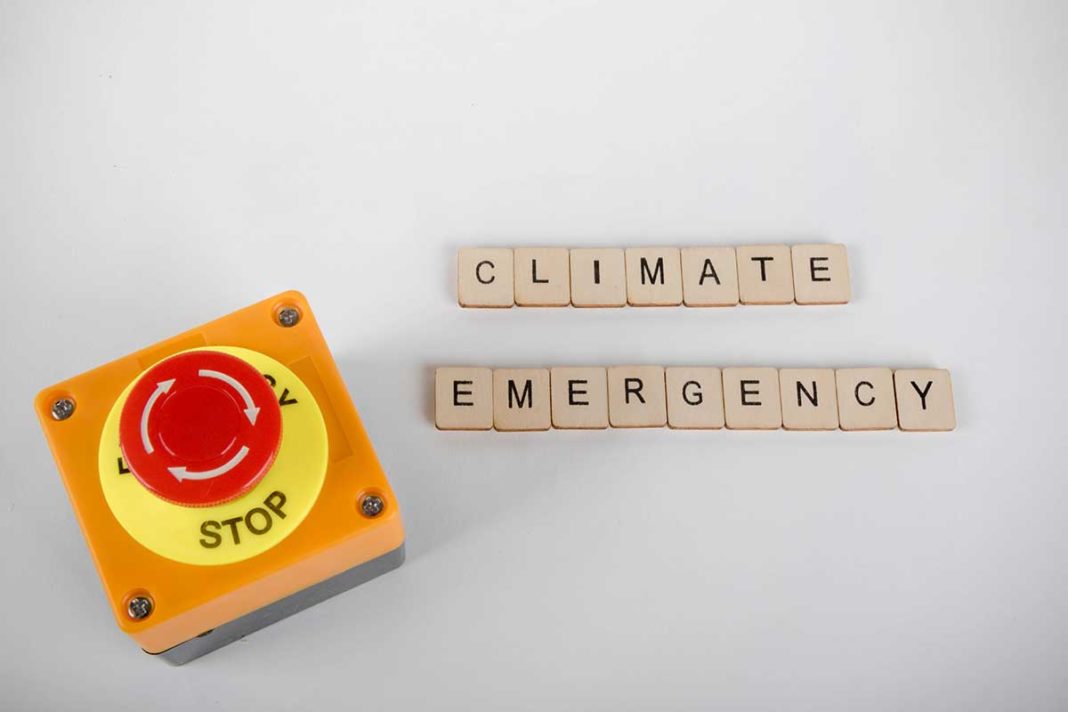MINDEMOYA – A Mindemoya resident, who is also a member of the Central Manitoulin climate action committee, made her case for the municipality declaring a climate emergency at a recent meeting.
Jan McQuay told members of the Central Manitoulin property committee, “thanks for allowing me time to present the climate emergency declaration that was passed by the climate action committee last June. I believe you all have it. I’m not asking you to vote on it tonight. I’m asking you to go over it clause by clause, read about the latest climate science and mull it over before making a decision.”
“I’ll start with this quote from the Secretary General of the United Nations, Antonio Guterres. If we are going to limit global heating to 1.5 degrees Celsius, we need to demonstrate, starting this year, how we will achieve emissions reductions of 45 percent from 2010 levels this decade, and how we will reach net-zero emissions by mid-century. Let us be very clear. We are in an unfolding climate emergency.”
“Why do we need our leaders to declare a climate emergency?” said Ms. McQuay. “Because we need to get people’s attention. The news gets more dire with each passing year. The Kyoto Protocol was signed in 1997 with countries including Canada agreeing to greenhouse gas (GHG) reductions, but since then, worldwide emissions have increased (including Canada’s). That’s 23 years, a whole generation. Twenty-Three years have passed and GHGs are still rising. Most of that is from burning fossil fuels.”
Ms. McQuay explained, “climate scientists are virtually unanimous in warning that we are getting close to dangerous levels of GHGs in the atmosphere and in the oceans. The United Nations says worldwide emissions have to get to net zero by 2050 to reduce the risk of severe, devastating impacts. They also give an interim target of a 45 percent reduction from 2010 levels by 2030; that’s in just 10 years. Why listen to them? Because the United Nations brings together all the best, peer-reviewed science around the world.”
“We all would prefer to ignore the science,” said Ms. McQuay. “Nobody wants to change, but we have to, just like we have to change to contain the coronavirus. In parts of the US people still think the coronavirus is a hoax. They have parties without face masks and schools opened in Georgia even though the health experts warned the community spread was too high. At least 189,000 (now more than 200,000) Americans have died from coronavirus. We’d be foolish to act like them. But when it comes to climate science, we are acting like them. In Canada we have many politicians who will listen to the health scientists but still scoff at climate scientists.”
“The climate crisis has been building up since the 1800s starting very slowly and building quickly up over the last few decades. We are heading to tipping points, where climate heating will become a runaway, uncontrollable cascade of feedback loops,” said Ms. McQuay.
“Kids know about this. Many teenagers and young people are scared,” continued Ms. McQuay. “I’m 70 so I won’t be around by 2050, in fact most of the people here won’t be around, but today’s kids will be middle-aged. We have put their futures at great risk. Why? Why did we, their parents and grandparents, aunts and uncles, let this happen?”
“Because we haven’t taken it seriously,” said Ms. McQuay. “People say, look around, we haven’t had much climate change here. The crops are good, no problem. That’s like saying, “look around, only three people on Manitoulin have gotten sick from the coronavirus, and nobody has died. But we know what’s happening elsewhere.”
“Here’s where we’re heading. Glaciers and ice sheets are melting in the polar regions and if we don’t cut back emissions dramatically, Florida, Louisiana, and Mississippi will flood, also Prince Edward Island, Richmond, BC parts of Montreal and other coastal areas. But we’ll be fine.”
“Climate patterns are changing already,” stated Ms. McQuay. “Firestorms are mostly in the west and places like Australia, droughts occur in Africa and the Middle East. 2020 is likely going to be the worst year for wildfires in California’s history. None of this affects us so why should we care? The Parry Sound wildfire of 2018 only burned 110 square kilometers, nothing like the 187,000 square kilometers in Australia that killed over three billion wild animals. Well, that was halfway around the world. We shrug.”
“So we think it’s not going to affect our own children? What will happen to 200 million displaced people in 2050? In the next decades there will be a couple of hundred million refugees from drought and flood, desperate, starving people. Will we turn our backs on them?”
Ms. McQuay pointed out, “the climate crisis is not going to go away just because we refuse to face it. But how do we get people to take it seriously? In the small survey Kristen (Koetsier, former Central Manitoulin climate change coordinator) did, only two out of five people knew there were tipping points, that is, where global warming will become runaway, unstoppable global heating that will take us well beyond anything the world has experienced in millions of years.”
“We need to recognize that there’s a crisis to galvanize people so that we don’t end up with runaway global heating,” continued Ms. McQuay. “Some of us who follow the science and watch politicians do almost nothing have a hard time keeping up hope. Other people believed climate change was a hoax until recent years. Now most of those people are saying it’s too late. To them, I say, why didn’t you declare a crisis when you saw the problem? Why did you follow the climate deniers until you suddenly reached despair? We are extremely privileged. We’re not on the front lines of the climate crisis, but we cannot ignore the fact that as we cross tipping points no one, including us, will be spared.”
“Some people say we can’t afford to change, even though each of us are among the greatest producers of greenhouse gases per person in the world in one of the richest nations in the world. We need to follow the science and do what is necessary, not hide from the science or shrink from the challenge out of lack of will. Please consider this and I hope that you will declare a climate emergency in the near future.”
With no questions from the committee, chair Dale Scott said, “I would like to thank Jan for taking the time, and making your presentation tonight. We will take this into consideration and act in the near future on it.”





